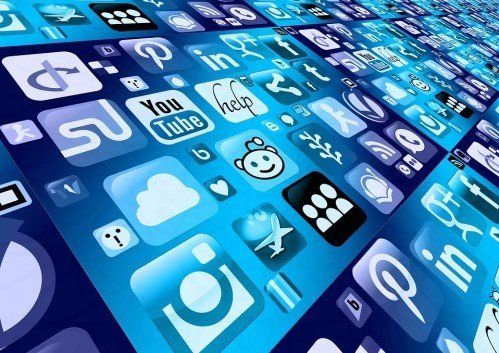"Shine Online"
You're Probably Not Even Thinking About One Of Social Media's Biggest Dangers
Social media platforms allow us to stay connected to family and friends that we don't get to see every day, but they also allow hackers and identity thieves to gain access to our personal information. In the last few years, there has been a rise in identity theft cases that started from social media platforms.
It's critical that individuals practice safe and smart social media use to protect not just themselves, but also their businesses and their customers. Beware of these three common mistakes that can lead to your personal information being compromised, and learn ways to proactively protect your identity from being stolen:
Avoid oversharing.
When people start sharing information with the public, it can open up doors for the information to be used against them. Details like full name, date of birth, hometown and even school locations and dates of graduation can become dangerous in the wrong hands. Social media platforms typically require your name and your date of birth, but most platforms will give you the option to not make the information shareable.
Beyond basic information, be careful about what you post. Of course, you should not share your debit/credit card and social security numbers with people online, but images can be dangerous, too. A few examples would be things like posting a picture of your new car and not covering your license plate number or sharing event details that contain your home address. If these get in the hands of someone you don't know, that person could use the information to steal your identity.
Restrict application permissions to your social media accounts.
When you download a new application that gives you the option to log in with a social media platform instead of using an email address, you are giving the app the rights to your information that has been collected on the platform. You might not think anything of it or that it would impact you in a negative way, but as we saw with the Cambridge Analytica data scandal , third parties have been able to gain access to information on social media users without their knowledge.
Use careful consideration when granting access to any application, regardless of its stated intent. Even if the app itself is benign, a hack or data breach could leave your personal information out in the open. And the more applications your social channels are linked to, the more vulnerable your information is to being hacked and used inappropriately. Make sure to review the settings on your social media accounts, including the permissions for apps, and delete applications that you no longer use.
Update security functions regularly.
Changes to websites and applications happen often, and it is never a bad idea to monitor the security functions on different platforms to ensure that your information is protected. You should have a clear understanding of what the default security settings are and how to change them so that information is only shared with the audience you choose. Many people are surprised when they learn how broadly visible their information is by default on social media; you don't want to be caught unaware when your personal information is at stake.
In addition to security functions, you should consider changing your password frequently and avoid using the same password across different accounts. A rogue hacker tweeting from your profile might not make you sweat, but what if that person then also had access to your bank accounts and healthcare data? If someone was able to gain access to an account with a shared password, they will have a lot of information about you that they can use to steal your identity.
How can you protect your information?
Before you start shutting down all social media platforms because of fear of identity theft, there are a few more things that you can start doing now to protect yourself. Only follow or friend people that you know, and be mindful of what you post and share. When accessing accounts in public spaces, make sure to log out when finished and delete any browsing history. Lastly, never give out your social security or credit card number to any person or business unless it is legally mandatory (as with an employer for tax purposes or when applying for certain federal benefits).
Identity theft is something that individuals should be vigilant about, but it doesn't need to be a burden. Keep best practices in mind so you can still enjoy the positive benefits of social media and protect your information from the bad guys.
Resource: https://www.entrepreneur.com/article/320172
Editor, Aubree Russell
Register for 805 Reviews. Get your business listed for FREE. Promote your event, business, deals, and much more. This is a mobile APP and Website that is a MUST HAVE







